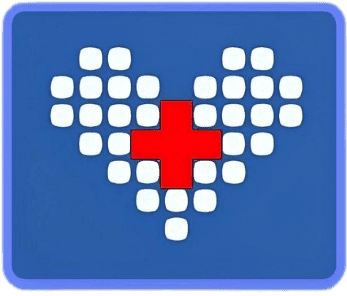Why Routine Check-ups are Vital for Your Heart Health

Posted on January 5th, 2024.
Routine check-ups, heart check, regular check-up - these may seem like mundane appointments, but they play a crucial role in maintaining your overall well-being.
In this blog post, we'll delve into the importance of regular routine check-ups for heart health and why you should prioritize them.
Why Routine Check-ups are Vital for Your Heart Health
Early Detection Saves Lives
Early Warning Signs
Heart diseases often develop silently, with no apparent symptoms until they become severe. Regular heart check-ups enable healthcare professionals to identify warning signs like high blood pressure, elevated cholesterol levels, or irregular heart rhythms early on.
Intervention and Prevention
Early detection allows for timely interventions and preventive measures. Your healthcare provider can prescribe medications, recommend lifestyle changes, or suggest further tests to manage your heart health effectively.
Risk Assessment
Identifying Risk Factors
Routine check-ups include a comprehensive evaluation of your risk factors, such as family history, age, and lifestyle choices. This assessment helps healthcare professionals tailor their recommendations to suit your unique needs.
Personalized Care
Based on your risk assessment, your healthcare provider can develop a personalized plan to mitigate potential risks and improve your heart health. This may include dietary modifications, exercise regimens, or stress management techniques.
Monitoring Progress
Tracking Health Metrics
Regular check-ups allow for consistent monitoring of your vital health metrics, such as blood pressure, cholesterol levels, and body mass index (BMI). Tracking these metrics over time helps detect any deviations from your baseline.
Adjusting the Treatment Plan
If your health metrics show unfavorable changes, your healthcare provider can make necessary adjustments to your treatment plan promptly. This proactive approach prevents the progression of heart-related conditions.
Lifestyle Modification
Encouraging Healthy Habits
Routine check-ups serve as a platform for healthcare providers to educate patients about adopting heart-healthy lifestyles. These discussions often include advice on diet, exercise, smoking cessation, and stress reduction.
Motivation and Accountability
Knowing that you have scheduled check-ups can motivate you to stick to your health goals. It provides a sense of accountability and a continuous opportunity to discuss your progress with your healthcare team.
Preventing Complications
Avoiding Heart Complications
Unchecked heart issues can lead to serious complications, such as heart attacks, strokes, or heart failure. Regular check-ups can help identify potential problems before they escalate, reducing the risk of these life-threatening events.
Cost-Efficient Care
Preventing complications through routine check-ups can save you money in the long run. It's much more cost-effective to manage your heart health proactively than to deal with the financial burden of emergency medical treatments.
Peace of Mind
Reducing Anxiety
Knowing that you are actively monitoring your heart health can reduce anxiety and stress related to potential health issues. It provides a sense of control and empowerment over your well-being.
Quality of Life
Maintaining good heart health through routine check-ups contributes to an improved quality of life. It allows you to enjoy your daily activities, spend quality time with loved ones, and pursue your passions without the constant worry of heart-related complications.
Conclusion
In conclusion, routine check-ups are the cornerstone of heart health. They enable early detection, personalized care, and the prevention of complications. By making regular check-ups a part of your healthcare routine, you take a proactive step towards a healthier, happier life.
At The Ruth Lee Miller Heart Health Research Foundation, we are committed to supporting your heart health journey. For local heart health screenings and expert guidance, please reach out to us at 131-462-99023 or email us at [email protected]. Your heart deserves the best care, and we're here to provide it.
Contact
Get in Touch
We're here to answer your questions, explore partnerships, and collaborate on heart health initiatives. Join us in our mission to empower healthier hearts, and together, we can make a real impact.

